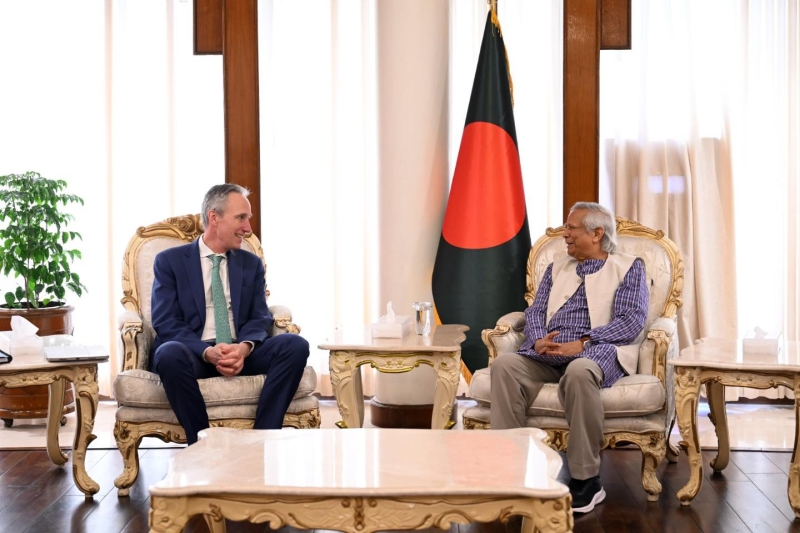- Bangladesh ranks 151 out of 180 in corruption perception index |
- Israeli military operation displaces 40,000 in West Bank |
- Pak, Saudi agree to convene OIC FMs meeting over Gaza |
- UN HR Office news confce on Bangladesh July protests Feb 13 |
- Most nations miss deadline for plans to fight climate change |
World Bank Reaffirms Support for Bangladesh's Reforms

World Bank Vice President Martin Raiser today called on Bangladesh Chief Adviser Professor Muhammad Yunus at the State Guest House Jamuna in the capital. Photo: BSS
World Bank Vice President Martin Raiser has reiterated the global lender’s commitment to supporting Bangladesh’s reform efforts under the Interim Government. His pledge came during a meeting with Chief Adviser Professor Muhammad Yunus at the State Guest House Jamuna.
The discussions centered around the World Bank’s financing of key reforms in Bangladesh, including efforts to improve transparency, governance, and digitalization, with a particular focus on tax administration.
“We are supporting a wide range of urgent reforms aimed at improving governance and transparency, particularly in tax policy, public procurement, and statistics,” Raiser stated. He emphasized that these reforms are crucial for Bangladesh's democratic transition and long-term, inclusive growth.
Raiser also highlighted the importance of separating tax administration from tax policy to enhance transparency and governance in the revenue system. He recommended that tax exemptions should be decided solely by Parliament.
Chief Adviser Prof. Yunus shared his initiative to establish a consensus commission, which will facilitate dialogue between political parties on the reforms proposed by six major commissions. “Once political parties reach a consensus, they will sign a July Charter to implement these reforms, initially under the Interim Government and later by the elected government,” he explained.
The two also discussed the need to strengthen public procurement and ensure the independence of the Bangladesh Bureau of Statistics (BBS) to improve data quality for effective policymaking. Additionally, Raiser emphasized the significance of a robust digitization agenda, particularly concerning the National Identification (NID) system, and expressed the World Bank’s readiness to help Bangladesh connect with countries that have developed digital identification infrastructures.

